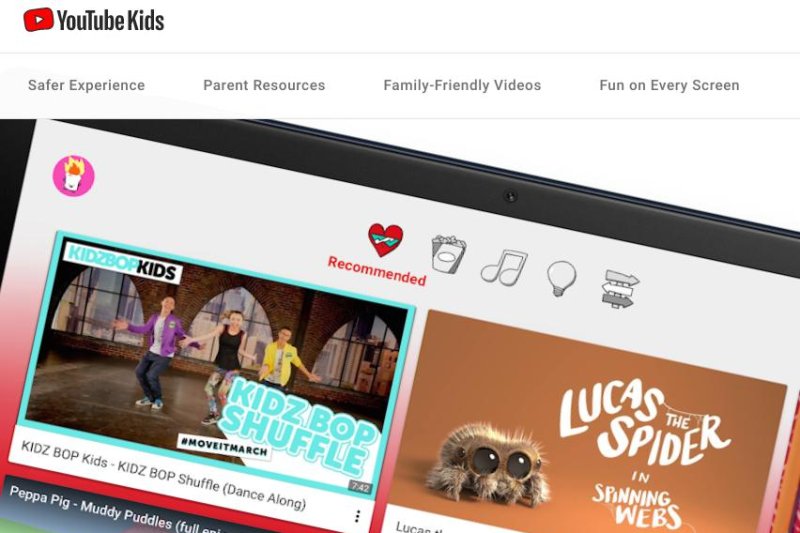The company said beginning next month, "low-quality" content on YouTube Kids that's found to be "heavily commercial or promotional" or encourages "negative behaviors or attitudes" will be demonetized. Image/screenshot by YouTube Kids
Oct. 26 (UPI) -- In an effort to increase safety for children on its platform, YouTube says that it will begin to demonetize channels next month if they encourage negative behavior or are overly commercial in content that's aimed specifically at kids.
The company specified the new policies for YouTube Kids, its platform for users younger than 12, in a blog post on Monday.
In addition, YouTube says it will also block revenue to child-focused content if it's low in quality or encourages negative attitudes. Individual videos that are found to violate the policy can have monetization elements, like ads, removed.
According to the Google-owned company's rules, "low-quality" content on YouTube Kids is that which is found to be "heavily commercial or promotional" or encourages "negative behaviors or attitudes."
"High-quality" videos made for kids, it says, are those which focus on learning and "inspiring curiosity, diversity, equity and inclusion."
James Besser, YouTube director of product management for kids and family, said those principles will lead to more favorable content and fewer videos that violate the policy.
"We aim to recommend videos that are age-appropriate, educational and inspire creativity and imagination," Besser wrote in the blog post.
"Going forward, these principles will have not only an impact on recommendations and inclusion in YouTube Kids, but also on monetization."
YouTube said it's already contacted some creators who may violate the new policy to help them prepare for the change.
"Our ultimate goal is to foster a safe and enriching environment for families," Besser added.
Last summer, Google said that accounts belonging to teenagers would automatically be set to "private" and such accounts also would not see age-sensitive ads.
The new policy, which takes effect next month, was announced a day before a YouTube executive appeared in the U.S. Senate to testify on the potential dangers of social media for children. Tuesday, YouTube vice president of public policy Leslie Miller appeared before a subpanel of the Senate commerce committee.
The same committee heard testimony earlier this month from Facebook whistleblower Frances Haugen about the dangers and impacts of social media on children.















